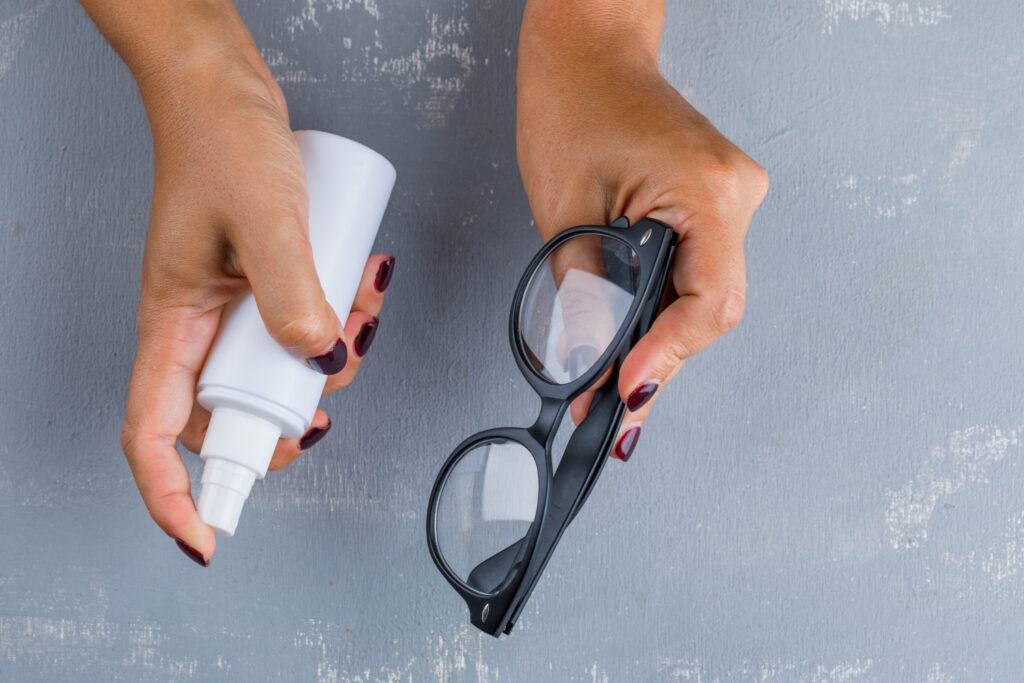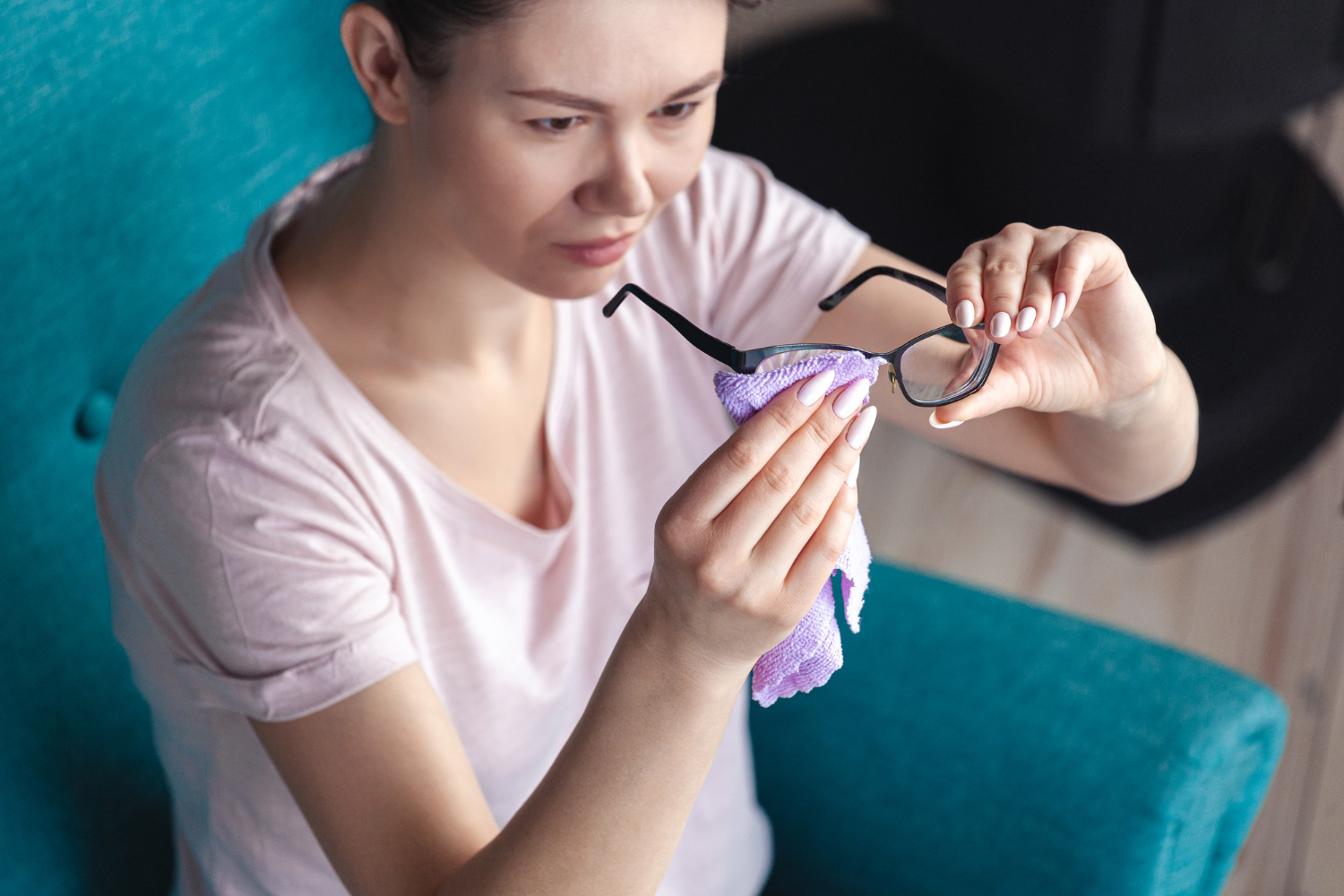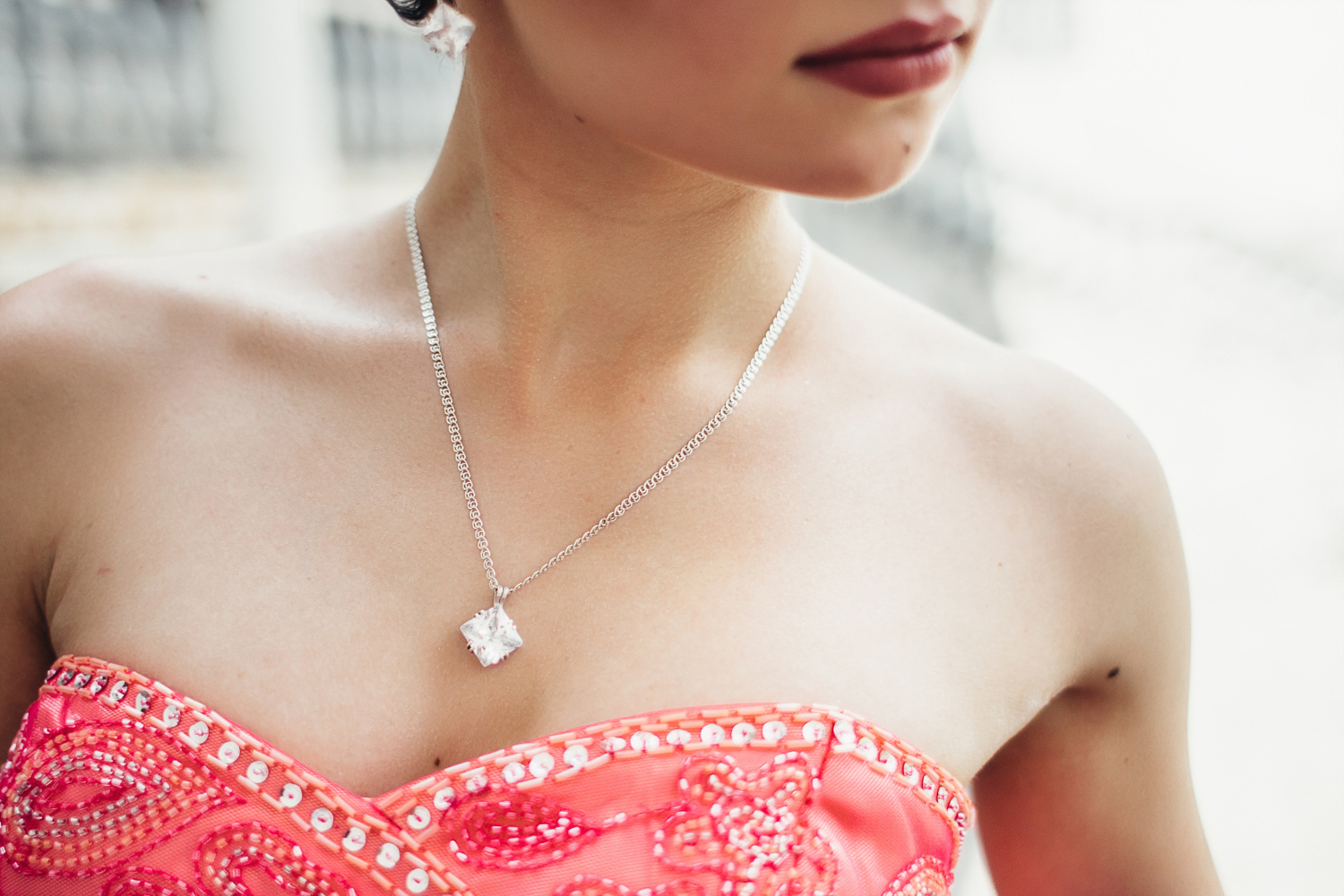Keeping your glasses clean is essential for maintaining clear vision and prolonging the life of your lenses. But with so many cleaning products on the market, it’s hard to know which ones are safe to use.
One product that’s often considered for its effectiveness in disinfecting various surfaces is CaviWipes. But can you use CaviWipes on glasses? Let’s explore this question in detail to ensure you’re taking the best care of your eyewear.
Table of Contents
ToggleWhat Are CaviWipes?
CaviWipes are a type of disinfectant wipe known for their potent cleaning abilities. These wipes are pre-saturated with CaviCide, a broad-spectrum disinfectant that kills bacteria, viruses, and fungi. CaviWipes are commonly used in healthcare settings like hospitals, dental offices, and laboratories to disinfect non-porous surfaces.
Common Applications
- Healthcare Settings: Hospitals, emergency medical settings, neonatal units, surgical centers, and dental offices.
- Non-Food Contact Surfaces: Ideal for use on equipment and fixtures in clinics, nursing homes, eye surgery centers, and more.
Effective Uses
CaviWipes are effective for disinfecting various surfaces such as ambulance equipment, laboratory tables, chairs, and bathroom fixtures. They’re designed for tough environments where preventing cross-contamination is crucial.
Can You Use CaviWipes on Glasses?
The short answer is no. While CaviWipes are excellent for disinfecting many types of surfaces, they’re not suitable for cleaning glasses. Let’s break down why.

Composition of CaviWipes
CaviWipes contain strong disinfectants that can be harsh on delicate surfaces. The active ingredients are designed to kill harmful microorganisms but can also damage sensitive materials like eyeglass lenses and coatings.
Expert Opinions
Eyewear manufacturers and optometrists generally advise against using strong disinfectants like CaviWipes on glasses. The chemicals in these wipes can deteriorate lens coatings and leave residues that affect vision clarity.
Risks of Using CaviWipes on Glasses
Using CaviWipes on your glasses can lead to several issues:
Damage to Lens Coatings
Many glasses come with special coatings such as anti-reflective or scratch-resistant layers. The chemicals in CaviWipes can break down these coatings over time, leading to a loss of their beneficial properties.
Abrasive Nature
Although CaviWipes are described as non-abrasive, their texture is still too rough for the delicate surfaces of eyeglass lenses. This can result in scratches that impair your vision.
Chemical Residues
The disinfectants in CaviWipes can leave a residue on your lenses. This residue can blur your vision and may even cause eye irritation.
Proper Cleaning Methods for Glasses
To keep your glasses in top condition, it’s essential to use the right cleaning methods.

Use Mild Soap and Water
One of the safest and most effective ways to clean your glasses is with mild soap and water. Here’s a step-by-step guide:
- Rinse Your Glasses: Start by rinsing your glasses with lukewarm water to remove any dust or debris.
- Apply Soap: Use a drop of mild dish soap on each lens. Gently rub the lenses and frames with your fingers.
- Rinse Thoroughly: Rinse the soap off thoroughly with lukewarm water.
- Dry with a Microfiber Cloth: Use a clean microfiber cloth to gently dry your glasses.
Use Dedicated Eyeglass Cleaners
Specialized eyeglass cleaners are formulated to clean your lenses safely. Look for products recommended by eyewear manufacturers.
Use Microfiber Cloths
Microfiber cloths are excellent for cleaning glasses because they’re soft and non-abrasive. Always use a clean cloth to avoid transferring dirt or oil to your lenses.
Avoid Common Cleaning Mistakes
- Using Shirt Sleeves: Fabric from clothing can be abrasive and may scratch your lenses.
- Household Cleaners: Avoid using household cleaners or disinfectants not specifically designed for eyewear.
Benefits of Properly Cleaning Your Glasses
Cleaning your glasses correctly offers several benefits:
Prolongs the Life of Your Lenses and Frames
Proper cleaning methods help maintain the integrity of your lenses and frames, extending their lifespan.
Ensures Clear Vision
Regular cleaning prevents smudges and streaks, ensuring your vision remains clear.
Prevents Bacteria Buildup
Cleaning your glasses removes bacteria and other debris, promoting better eye health.
Conclusion
To summarize, while CaviWipes are highly effective for disinfecting various surfaces, they are not suitable for cleaning your glasses. The chemicals and abrasives in these wipes can damage lens coatings, leave chemical residues, and affect your vision clarity. Instead, opt for mild soap and water, dedicated eyeglass cleaners, and microfiber cloths to keep your glasses in top condition.
Remember, proper care of your eyewear is crucial for maintaining clear vision and prolonging the life of your lenses and frames. For more tips on eyewear care and to explore our range of dedicated cleaning products, visit our website.
FAQs
Can you use disinfecting wipes on glasses?
Most disinfecting wipes are not recommended for glasses due to their harsh chemicals and abrasive textures. Opt for dedicated eyeglass cleaning solutions instead.
Is it OK to use baby wipes on glasses?
While baby wipes are gentler than disinfecting wipes, they’re still not ideal for cleaning glasses. The ingredients can leave residues and may not effectively clean the lenses.
Can you use screen wipes on glasses?
Screen wipes are designed for electronic screens and may be too harsh for eyeglass lenses. Use wipes specifically formulated for eyewear to avoid damaging your glasses.
What are CaviWipes used for?
CaviWipes are used to disinfect hard, non-porous surfaces in healthcare and critical care settings. They are effective for killing a wide range of microorganisms but are not suitable for use on skin or delicate surfaces like eyeglasses.









